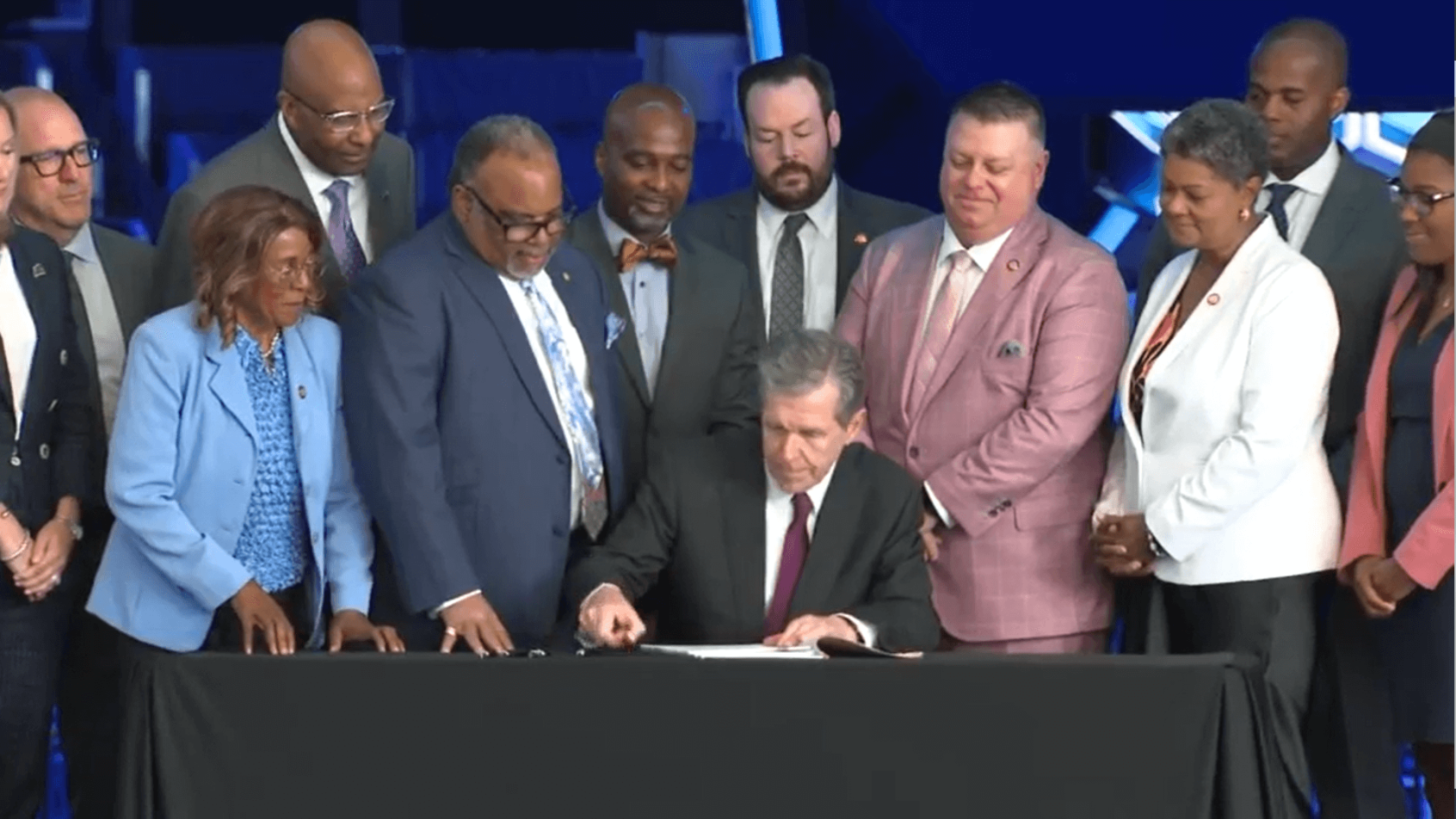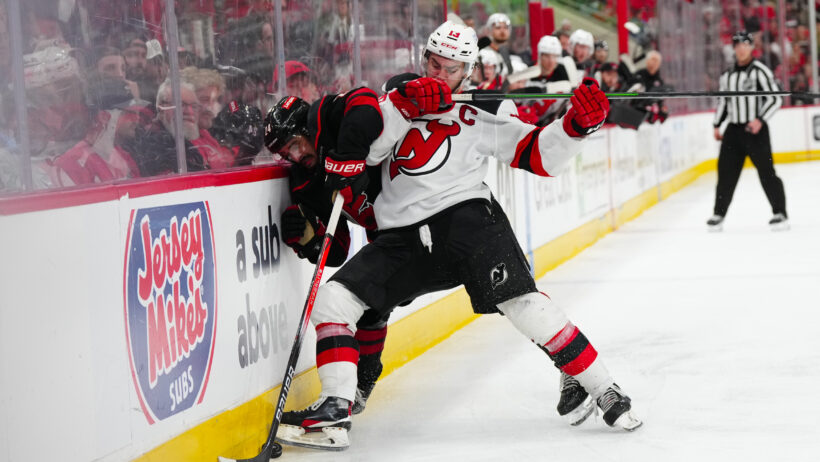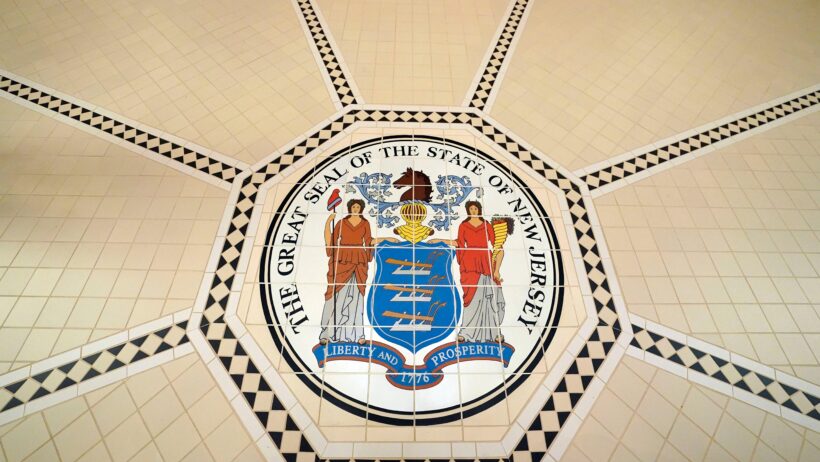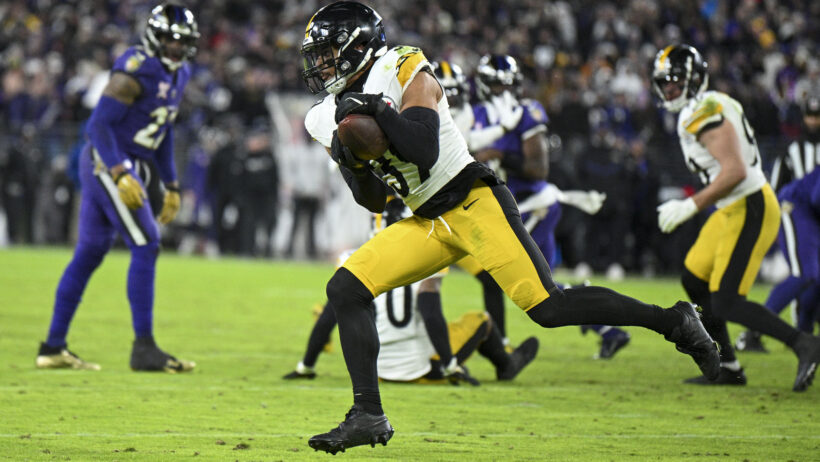Gov. Cooper Signs North Carolina Online Sports Betting Bill Into Law
By Robert Linnehan in Sports Betting News
Published:

- Gov. Roy Cooper (D) has signed North Carolina’s online sports betting bill into law
- Online sports betting is now legal in the state, ending a multi-year journey
- The state now has 12 months to launch online sports betting
The 12-month window to launch North Carolina online sports betting officially began today after Gov. Roy Cooper (D) signed the state’s online sports betting bill into law.
Cooper signed the legislation at Spectrum Center, home of the Charlotte Hornets, this morning. The bill legalizes 12 online sports betting licenses and brick-and-mortar sportsbooks at eight “places of public accommodation.” Spectrum Center is one of the eligible locations for a brick-and-mortar sportsbook.
The Tar Heel State now has 12 months to launch online sports betting.
North Carolina Online Sports Betting Now a Reality
Retail sports betting has been legal in the state at tribal casinos since 2019 and will be expanded through this new piece of legislation. Online sports betting, according to state officials, will likely launch in North Carolina in early 2024.
Gov. Cooper signed HB 347 alongside the leading legislators who pushed the bill through the state general assembly.
“This is a historic moment for the state of North Carolina. This will benefit our economy for generations to come,” Cooper said.
The bill officially being signed into law kicks off a 12-month window for the state to launch online sports betting. The North Carolina Lottery Commission will regulate and license sports betting in the state, Cooper said, and will begin the process right away.
Van Denton, director of communications for the North Carolina State Lottery Commission, recently said the commission will begin the process of developing sports betting rules and regulations immediately after Cooper signed the bill.
“The new law will give the N.C. State Lottery Commission and its staff the job of licensing and regulating sports betting on professional and college sports as well as horse racing. Sports betting and horse racing are new to North Carolina and it will be a new responsibility for the commission. The law gives the commission up to a year to get the rules and regulations in place so 12 sports wagering operators as well as all their providers and suppliers can get licensed. Once the legislation becomes law, the commission will start work to meet those responsibilities so that sports betting can begin and so that it will be conducted as responsibly as possible,” Denton said.
North Carolina Sports Betting Details
The eight facilities eligible to host brick-and-mortar sportsbooks are PNC Arena in Raleigh, WakeMed Soccer Park in Cary, Bank of America Stadium and Spectrum Center in Charlotte, Charlotte Motor Speedway in Concord, North Wilkesboro Speedway, Sedgefield Country Club in Greensboro and Quail Hollow Country Club in Charlotte.
Each of the licensed facilities will be allowed to partner with up to one online sports betting operator.
The sports betting bill includes an 18% sports betting tax rate, legalizes pari-mutuel wagering on horse racing, and disallows sports betting operators to deduct promotional bets from their gross revenues. It allows allows bets on professional sports, college sports (including in-state schools), eSports, and the Olympic games.
At an 18% tax rate, the state estimates $22.1 million in total sports wagering tax and fee revenue by FY 2023-2024, which increases to $100.6 million by FY 2027-28.
Sports Betting Revenue Distribution
North Carolina sports betting tax revenues will be distributed as follows:
- $2 million annually for gambling addiction and treatment services
- $1 million annually to Division of Parks and Recreation for the purchase of youth sports equipment
- $300,000 each annually to seven state universities for their athletic departments
- $1 million annually to Outdoor Heritage Advisory Council for grants
If there is any remaining revenue, it will be distributed as follows:
- 20% to 13 historically black colleges and universities for their athletic departments
- 30% to a fund to attract major sporting events to the state (Super Bowl, March Madness, etc.)
- 50% to the state’s general fund
Online sports betting licenses will cost $1 million for five years.

Regulatory Writer and Editor
Rob covers all regulatory developments in online gambling. He specializes in US sports betting news along with casino regulation news as one of the most trusted sources in the country.



